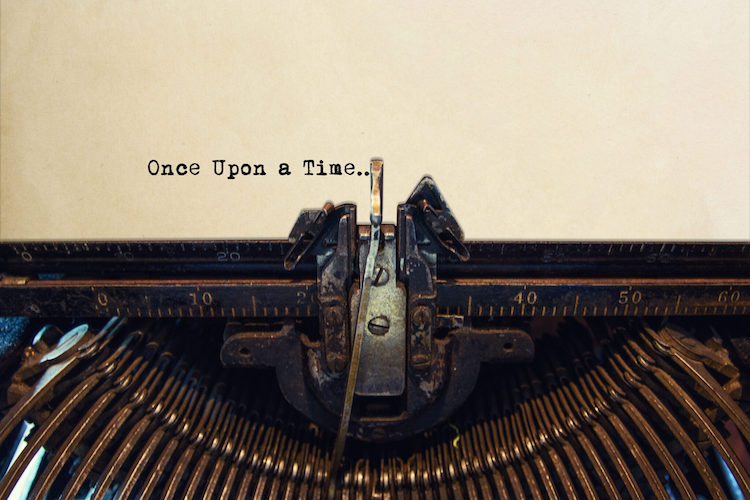
Welcome to GR Online, a series of short-form articles that take aim at the moving target of contemporary culture as it’s whisked along the guide rails of innovations in digital media, globalisation and late-stage capitalism.

Reluctant farewell to a trusted companion
I visited the Metropolitan Museum of Art, the Guggenheim, the Museum of Natural History, basically anywhere that allowed strollers. I spent a lot of time in Barnes & Noble on 86th (which is now, depressingly, a Target). There was even special stroller parking on the kids’ level.
In fact, I didn’t really go anywhere that I couldn’t get to with the stroller. The children and I only left Manhattan a total of nine times the entire year (three times to go to the New York Botanical Garden in the Bronx, twice to go to a Greek restaurant in Astoria that had an extremely high Zagat rating and was very good, once to go to the Bronx Zoo, once to go to Brooklyn to see what all the fuss was about, once on the train to Boston and once we hired a car to drive to Washington, DC to spend Easter with friends). That was it.
Here was the thing – the red double stroller gave me the freedom and security of knowing that I could go outside with both children, be completely prepared with all my accessories and baby/toddler supplies and everything would be okay. If I could make a plan to leave the apartment and walk there with the stroller, I would do it.

Nostalgia on demand
How then do we approach a circumstance in which it is possible to consciously curate those memories and sense impressions, such that they become mere features of our ‘profile’? Or one where third parties, having gleaned enough data to know us better than we know ourselves, can supply those memories and impressions for us?

James and the Giant BLEEP
It’s in this way that supposedly untranslatable words, for which our language has no exact or close synonym, are often so deeply pleasurable: not because those words reveal something about a worldview that’s unfamiliar or foreign to us but precisely the opposite.

The fall of the madmen
The problem with a fear-based workplace – and indeed world – is that caution and compliance are not compatible with creativity. Creativity searches for the things that have never been done before, on which, by definition, there is as yet no data. Scott Nowell argues that the obsession with data has made us lose faith in our own instincts, so it’s not surprising that creativity is not valued the way it once was. And the source of creativity has shifted to the consumers themselves.

Nothing ever lasts
But I hate thinking of myself as the diversity hire. As I said, I’ve worked in the industry for over a decade. ‘I belong in this room,’ I told myself. I’m not a token – despite being called that so many times in my career that I’ve lost count. I’ve earned my place.

Glitter and guts
All those years I had been excluded from the Anzac narrative because the Defence Act had outlawed Black enlistment. Lest we forget morphs into satire when you uncover the depths of collective amnesia surrounding Black service in World War I and Black resistance since colonisation. The more accurate catchphrase would be Best we forget. How can we be ‘one’ when we are not allowed to remember equally? Nostalgia is selective about remembrance.

Which way, Western artist?
Shadow for Zavros is cobwebby, a necessary concession to realism, avoided wherever possible. It manifests in surgical lines differentiating the contours of form from the seething morass of nature. Though Zavros indebts the modern Narcissus depicted in Bad Dad to Caravaggio, he has no affinity for the old master’s tenebrism; Apollonian form must triumph over Dionysian murk, lest all the fine things be swallowed.

Scarlett fever
The competition was notable for its shift away from being a Vivien Leigh lookalike contest. The bid to find a woman who, instead, ‘most closely’ resembled how Scarlett ‘would act and speak today’ and embodied ‘her spirit and sass’ opened up the search to any woman with a bit of chutzpah, including, in theory, Black and other women of colour.

Anticipating enchantment
When an editor works on a book, they balance reader expectations with what they interpret the author’s intentions to be and use their experience to make suggestions. This might mean changing some of the language to ensure the work is comprehensible for general readers, or asking for more detail where a setting has been hastily described. An editor will always be anticipating the market, and their extensive reading of contemporary works makes them well-placed not only to understand the social and political conditions of the day but also trends in publishing and marketing.

From anchor to weapon
In 1930s Germany, the slogan ‘blood and soil’ was most prominently promulgated by the Reich Ministry of Food and Agriculture, which positioned itself not merely as an administrator but a kind of advocate-guardian of the soil and its workers. In 1930, Adolf Hitler recruited Richard Walther Darré, then a leading blood and soil theorist, to the Nazi Party. On seizing power in 1933, Hitler appointed Darré Reichsminister of Agriculture, a role he occupied until 1942. Recently, for reasons that are unclear but politically alarming, Darré’s works on blood and soil have been translated and republished in English to some fanfare.

Farming futures
The tempo of seasonal food production gives Mildura its seductive groove. The race is on to get food to market when prices are high and before it wilts and rots. But this race is only incidentally about food and mainly about finance. When markets fail or supply chains are disrupted, harvests are bitter. Watermelons, zucchinis and lettuces are ploughed back into the ground. Grapes are left hanging on vines, sitting in coolrooms and rotting in shipping containers grounded at ports.

The ship, the students, the chief and the children
The power of the fossil-fuel order depends on foreclosing any kind of political and institutional decisions that would see societies break free from the malignant clamp of coal, oil and gas corporations. This power also depends on eliding alternative ways of seeing. In one sense, the whole of the political struggle against climate change can be understood as an effort to make corporate and political decision-makers see, such that they are required to act.